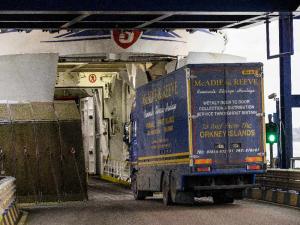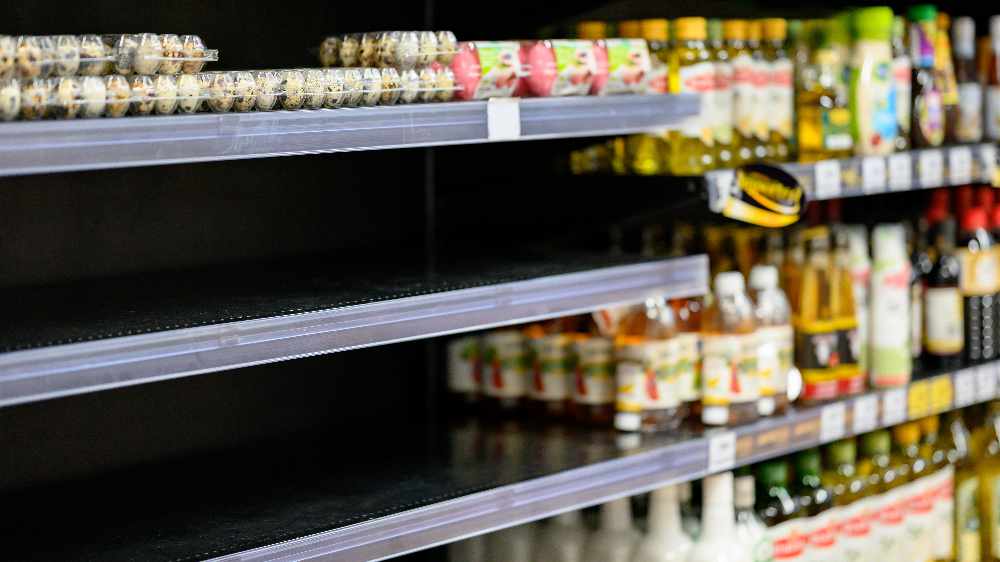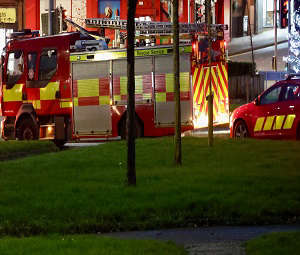
by Michael McHugh, PA
The British Government has unilaterally said the grace period for post-Brexit supermarket agri-food movements from the rest of the UK to Northern Ireland “will continue” until October.
Certification requirements will then be introduced in phases alongside the rollout of a digital assistance scheme, Northern Ireland Secretary Brandon Lewis added.
Businesses in Northern Ireland have been pressing for an extension to avoid a cliff-edge plunge into extra bureaucracy linked to the Northern Ireland Protocol.
Mr Lewis said: “As part of the pragmatic and proportionate implementation of the Northern Ireland Protocol, the Government is taking several temporary operational steps to avoid disruptive cliff edges as engagement with the EU continues through the Joint Committee.
“These recognise that appropriate time must be provided for businesses to implement new requirements, and support the effective flow of goods between Great Britain and Northern Ireland.”

Secretary of State for NI, Brandon Lewis
Checks on goods at Northern Ireland’s Irish Sea ports were agreed between Northern Ireland and the EU, to avoid a hard border on the island of Ireland and keep the region following the bloc’s trade rules.
That has caused some disruption to Irish Sea trade and prompted a backlash from unionists who fear it threatens Northern Ireland’s place in the UK internal market.
Mr Lewis said: “For supermarkets and their suppliers, as part of the operational plan the UK committed to at the UK-EU Joint Committee on February 24, the current Scheme for Temporary Agri-food Movements to Northern Ireland (STAMNI) will continue until October 1.
“Certification requirements will then be introduced in phases alongside the rollout of the Digital Assistance Scheme.”
He said further guidance will be provided later this week on parcel movements from Great Britain to Northern Ireland, to provide necessary additional time for traders beyond April 1.
“Guidance will also be set out to help address practical problems on soil attached to the movement of plants, seeds, bulbs, vegetables and agricultural machinery.”
The first of the grace periods had been due to expire at the end of March.
Supermarkets would have had to produce Export Health Certificates for all shipments of animal products.

Under the terms of the protocol, which governs the movement of goods in and out of the region post-Brexit, all non-prohibited agri-food goods arriving from GB require an EU export health certificate (EHC) declaring that they pose no risk.
They are a consequence of a Brexit deal that has resulted in Northern Ireland remaining in the EU single market for goods, while the rest of the UK has left that regulatory zone.
There are hundreds of different types of EHCs, with different forms for different products – and some products having multiple certificate versions.
The DUP is aiming to undermine the Northern Ireland Protocol.
The party’s Stormont Agriculture Minister, Gordon Lyons, sparked controversy on Friday night when he announced he had ordered officials to halt work on planned permanent facilities to carry out inspections on goods from Great Britain.
Rival politicians have accused Mr Lyons of stunt politics and have insisted he does not have the authority to act unilaterally on issues considered significant or controversial.
Sinn Fein, the SDLP and Alliance parties have made clear such decisions can only be taken by the Executive as a whole.


 Officer to be prosecuted for offence linked to Troubles memorial during pandemic
Officer to be prosecuted for offence linked to Troubles memorial during pandemic
 Pair appear before court charged with nurse’s murder
Pair appear before court charged with nurse’s murder
 Woman dies in West Belfast house fire
Woman dies in West Belfast house fire
 Eleanor Donaldson’s bid to have two charges withdrawn ‘should not delay trial’
Eleanor Donaldson’s bid to have two charges withdrawn ‘should not delay trial’
 Police surveillance operation to unmask journalistic source ruled unlawful
Police surveillance operation to unmask journalistic source ruled unlawful